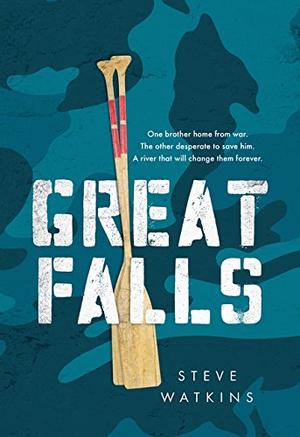Censory Overload
By Steve Watkins
I’m the author of a dozen books and a couple of more forthcoming, most of them realist fiction for young readers. They’ve sold around 1.5 million copies and won some national awards. I’ve done countless school visits and readings and book talks over the years. I also have a Ph.D. in American literature, was a tenured college professor, taught high school English, and raised four daughters.
All of which should have helped prepared me, but didn’t, for what happened in Northumberland County, Virginia a few years ago—brought back to mind by the recent censorship and book-burning controversy in nearby Spotsylvania.
It all started when the school librarian in Northumberland—let’s call him Dale—invited me over to do an afternoon talk and book signing at the middle school, where the Common Read that year was one of the books in the popular Ghosts of War series I’d written for Scholastic Press. The school had purchased hundreds of copies and given them out to all the students.
And since I was going to be there anyway, Dale asked if I might come a little early to speak at a high school assembly next door and do a reading from my newest Young Adult novel from Candlewick Press, Great Falls, about a returning Iraq War veteran and his family.
On the appointed day, I drove over to Northumberland and checked in with Dale. “I thought I’d read a passage where the Marine veteran reluctantly agrees to give a pep talk to his younger brother’s high school football team,” I said. “He ends up telling them about crossing the Line of Departure with vastly superior fire power and annihilating a bunch of Iraqi tanks and soldiers. There’s some profanity. Any problem with that?”
“Nah,” said Dale, a veteran himself. “Probably make the students more interested.”
400 high schoolers filed into the auditorium for the assembly. I started by telling them that Great Falls was inspired by a Marine family who had shared their story for a series of newspaper articles I’d written about their struggles with the father’s PTSD after his multiple combat deployments. On an overhead screen, I showed them a picture of the father, Captain Jason Haag, and his myriad tattoos. On one arm, he had the initials of the men with whom he’d served who’d been killed in combat. On the other arm were the initials of the ones who had taken their own lives.
After that I started the reading. Here’s part of the passage. The younger brother, Shane, is the narrator:
Jeremy pushes himself away from the locker and steps to the middle of the room.
“Coach asked me to talk to you gentlemen today,” he says. “About winning.”
You’d never know he was so lost just minutes before that he had to call me for help getting here.
“Well,” he says. “There isn’t any secret to it except one thing.” He pauses and winks at me, as if I’m the only one in the room who’s in on the big secret. Half the guys turn to look at me. Half just look bored.
“Forget what anybody says,” Jeremy continues, “because it isn’t heart, or willpower, or team chemistry, or any of that bullshit they tell you. It’s superior firepower.”
Guys look at one another with quizzical expressions. A couple look at me again. I don’t give them anything back.
“We had the M1-A1 Abrams tank in the invasion,” Jeremy says. “They had these ancient Russian pieces of shit. Had to come to a full stop before they could even fire.”
Coach taps his watch. Jeremy nods, but doesn’t change the pace of his delivery. “We see their muzzle flashes about as soon as we cross over what they call the Line of Departure into the desert. Everybody’s nervous, but then when the little turd bombs bounce off the Abramses, which are about the most heavily armored tanks in the history of modern warfare, we start laughing. And we keep on laughing when our guys unload a bunch of Sabot rounds on the Iraqis before they can throw their tanks into gear and haul ass.”
He pauses, looking casually around the room, pulling rank on everybody just through his eyes. Guys sit up straighter, though most probably don’t know what the hell he’s talking about.
“Sabot rounds carry depleted uranium rods,” he says. “They’re armor-piercing shells. So they punch right through those piece-of-shit Russian tanks. Through and through shots. Suck out everything and everybody as they exit—from the kinetic force or whatever. Rip their tank operators apart. Literally. At the molecular level.”
Jeremy sticks his hands back in his jeans pockets and shakes his head, remembering. “That was some sick shit,” he says. Then he nods at Coach again, and leaves.
I was a few pages into the reading when the Northumberland principal, visibly upset, suddenly showed up next to me on the stage. He covered the microphone and whispered, “You can’t read that here.”
It took awhile before the students’ laughter died down, but I eventually finished—editing out any remaining profanity from the dialogue as I went along in order to protect the Northern Neck high schoolers’ delicate sensibilities.
When the assembly was over, the principal called Dale and me down to his office. He was literally wringing his hands. Word had already gotten out about the reading, he said. It was all over the school. Probably all over the county. There were sure to be calls from parents. A member of the school board was in the building during the assembly and may have heard.
“You should have sent home permission slips,” he said to Dale. “And warned everyone about the profanity. There should have been an opt-out.”
Dale stammered an apology. I said something supportive, figuring the principal was surely over-reacting, then scooted off to an English class whose teacher had asked if I would drop by and speak to her students.
Dale was waiting for me in the hall at the end of the period. “Sorry,” he said. “But they want you to leave.”
This caught me by surprise. “What about the afternoon thing with the middle school kids?” I asked. “They all have books I’m supposed to sign.”
“Canceled,” he said. “They’re afraid there might be more profanity.”
“They’re afraid I might drop the F-bomb at an assembly for middle grade students?”
Dale nodded.
I could tell he felt terrible. And now I was worried that he might be in trouble. I’d been told about an assistant principal there the year before who was terminated after he led a community forum at the Northumberland community library on white privilege.
Dale led me to the front door and followed me outside. He kept apologizing. I kept telling him he didn’t have anything to apologize for. He’d just been doing what a good librarian does: Whatever it takes to get kids interested in reading.
And I said what should have been obvious: “The only obscenity here is a country that sends men and women into combat and doesn’t take proper care of them and their families when they come home.”
The middle school kids never did get their books signed. I canceled an evening talk I’d agreed to give at the public library and drove back to Fredericksburg. I’d had enough of Northumberland County for a while. A reporter for Virginia Public Radio, who lived in Heathsville, called me while I was driving. We were supposed to have met for her to record an interview, and she still wanted to do it if I didn’t mind. She’d already heard about what happened at the high school. The focus of her piece, she said, might have changed a little. After we finished, I had another call, this time from the local newspaper. They, too, had heard.
I got a slew of WTF? texts and calls and emails from friends a few days later after the Virginia Public Radio story ran. The Northumberland newspaper ran the censorship story on their front page, so I’m guessing it must have been a slow news week. My librarian friend Dale left for another school at the end of the year. He told me later that he’d ordered multiple copies of Great Falls when he was at Northumberland, and after the controversy they were checked out all the time. Couldn’t keep them on the shelves.
***
Steve Watkins, editor and co-founder of Pie & Chai, is the author of 12 books, a retired professor emeritus of American literature, a recovering yoga teacher, and the father of four remarkable daughters. He is also a tree steward with the urban reforestation organization Tree Fredericksburg and founder of Rappahannock Area Beaver Believers, a wildlife advocacy group, which you’re welcome to join on Facebook. His author website is stevewatkinsbooks.com. A version of this essay originally appeared in the Fredericksburg, VA, Free Lance-Star.


